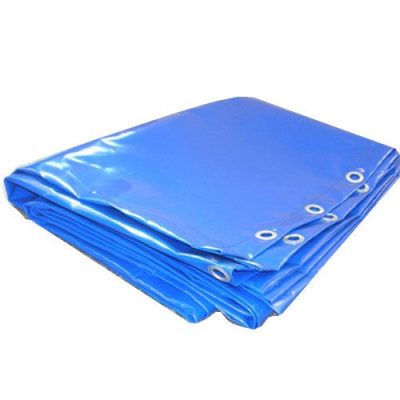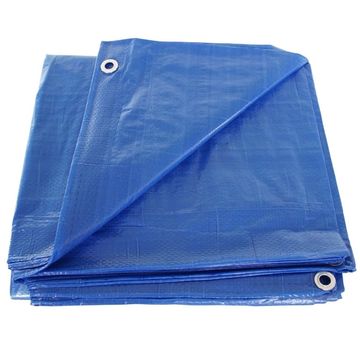PVC tarpaulin is indeed known for its excellent waterproof properties, and it is often referred to as a “waterproof wonder” in various applications. Here’s why it is considered as such:
- Impenetrable to Water: PVC tarpaulin is inherently waterproof due to its synthetic construction and the PVC coating. It effectively repels water and prevents it from passing through the material. This property makes it an ideal choice for covering and protecting items from rain, snow, or any other form of moisture.
- Seam Welding: PVC tarpaulins can be manufactured with seams that are heat-welded together, creating a strong, waterproof bond at the seams. This prevents water from seeping through the stitched areas, which can be a common weak point in tarpaulins made from other materials.
- Resistance to Water Damage: Unlike natural fabrics, such as canvas, which can become waterlogged and heavy when wet, PVC tarpaulin remains lightweight and maintains its structural integrity even when exposed to water for extended periods.
- Versatile Waterproofing: PVC tarpaulin is used in various applications where waterproofing is crucial. It is commonly used as covers for boats, trailers, outdoor equipment, and construction sites, as well as for creating waterproof barriers and awnings.
- Easy to Clean: PVC tarpaulin is relatively easy to clean and maintain, making it a practical choice for situations where cleanliness and hygiene are important. It can often be wiped down or hosed off to remove dirt, dust, and grime.
- Longevity: Its resistance to water damage and durability in various weather conditions contribute to the long lifespan of PVC tarpaulin, which can offer years of reliable waterproof protection.
It’s important to note that while PVC tarpaulin is highly effective at keeping water out, it may not be suitable for all situations. For example, it may not be breathable, so condensation can occur under the tarpaulin in certain conditions. Additionally, it can be relatively heavy and less breathable compared to some other materials, so its use should be chosen based on the specific requirements of the application. Nevertheless, its waterproofing capabilities make it a popular choice for many outdoor and industrial uses.


















